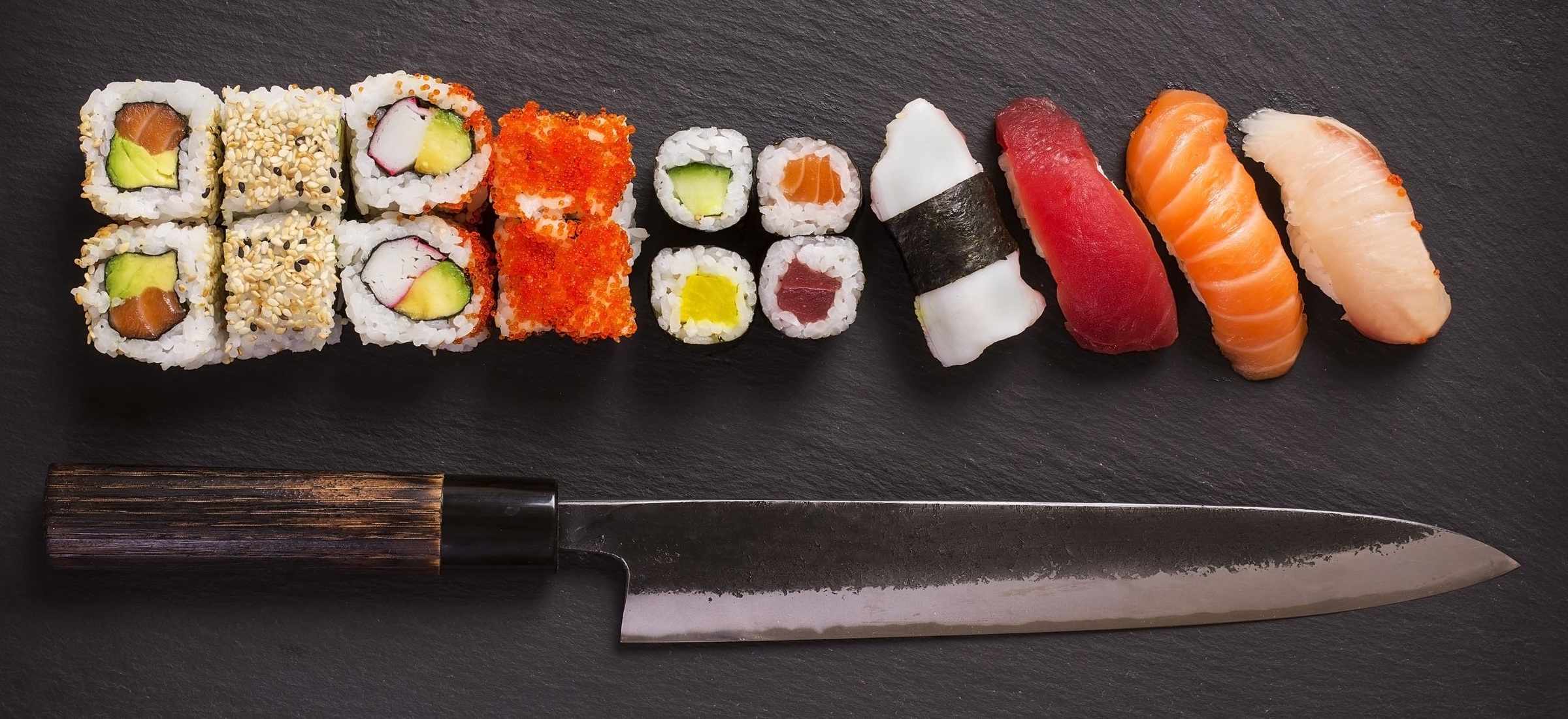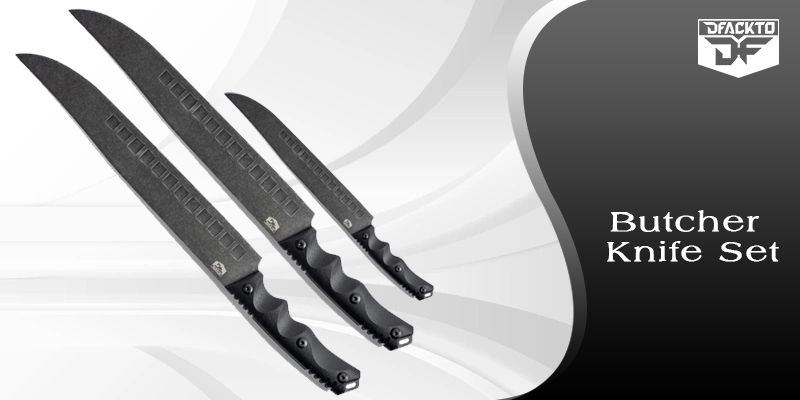Japanese knives are some of the most well-crafted knives in the world, with the same practices that have been perfected through the art of making katana (samurai swords) applied to make similar tools for the kitchen even today. In a world where there are countless great knives, Japanese knives are still highly sought after, but for what reason? Let’s dive in and go over the reasons why Japanese knives are some of the best around.
The Blade
Japanese knives are generally thinner, have a harder, tougher blade and heavier in the blade compared to western knives. They are known for their ability to hold extreme sharpness for a long time because of the hardness of the steel but can be prone to chipping and cracking if handled by untrained hands. Japanese knives generally require a higher level of upkeep in order to keep these hard blades in fine condition. However, with proper diligence this allows an owner to possibly continue using the same knife for twenty or thirty years. When you buy a Japanese knife, there is no reason to not go out of your way to get the best available because this is something you will grow attached to and use for a long time in your kitchen.
The Design
Aside from their enormous longevity, Japanese knives have a unique style in how they feel when held which comes from the design Japanese knives have. In short, western knives are equally weighted in the handle with proportion to the blade. This allows the chef to hold the knife with the blade in a firm pinched grip and use the knife with the full weight of your torso. Japanese knives, along with many other eastern style knives, are heavier in the blade with respect to the handle of the knife. This allows the chef to dice and chop ingredients effortlessly with less pressure applied to the blade.

Sushi knife in Japan are a great example of a heavier blade that allows a sushi chef to glide the blade smooth and seamlessly for precise cuts of fish. Preparing sushi requires ultimate precision and skill. If you were preparing sushi all day as your profession, you would want the least amount of effort needed to slice through fish. Personally, a Japanese knife feels amazing to hold and can give a greater sense of reverence to the blade of the knife.
Single Bevel
Another defining quality of Japanese knives is that they are single bevel, whereas western knives are double bevel. This means that the angle which leads to the edge of the knife is only grounded on one side in single bevel Japanese knives. A result of having a single bevel is that only one side of the knife is sharpened, while the opposite side is flat. This allows the edge of the knife to be sharpened to a smaller angle up to the edge which creates an incredibly sharp knife compared to double bevel knives.
Traditionally single bevel knives are made for right-handed grips. However, you can custom order knives with the bevel on the opposite side to accommodate left-handed grips. People are often amazed at how thin Japanese chefs can peel daikon (Japanese radish) or the skin of an apple into a paper-thin strip, this is because the single bevel of a Japanese knife allows these clean precise cuts.
Japanese Knife Brands
For many people, the problem is not finding a reason to buy a Japanese knife, but in where to buy a Japanese knife without going to Japan. Definitely a trip to Tokyo’s neighborhood of Kappabashi and getting to stroll through hundreds of their specialty knife stores is the pinnacle of Japanese knife shopping, but nowadays there are many Japanese brands that are available internationally too.
Brands like Shun or Global have international distributors around the world and are the real deal when it comes to Japanese knives. Both Shun and Global go to great lengths to perfect the balance and weight of their knives, boasting that the knives are hand tested throughout every part of the crafting process. Knife artisans at Global hand-pour sand into the handle of their knives in order to get the optimal weight. Shun describes their blade as “a way of life” and the name “Shun” derives from the meaning of when the fruit is at its sweetest or the peak of perfection. I think that is a great way to describe Japanese knives.
Conclusion
There is a sense of quality and culture in every stroke of the blade in Japanese knives. More than a tool, Japanese knives are the embodiment of Japanese history and their craftsmen behind it. If you are on the market for a new knife in your kitchen and haven’t had a Japanese knife yet. I can’t recommend a Japanese knife enough.


